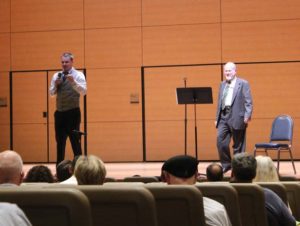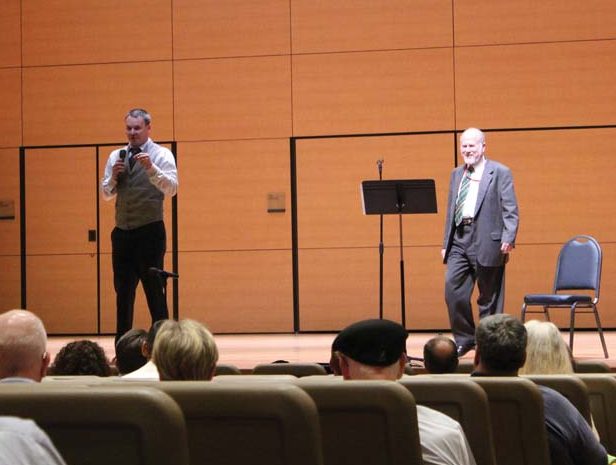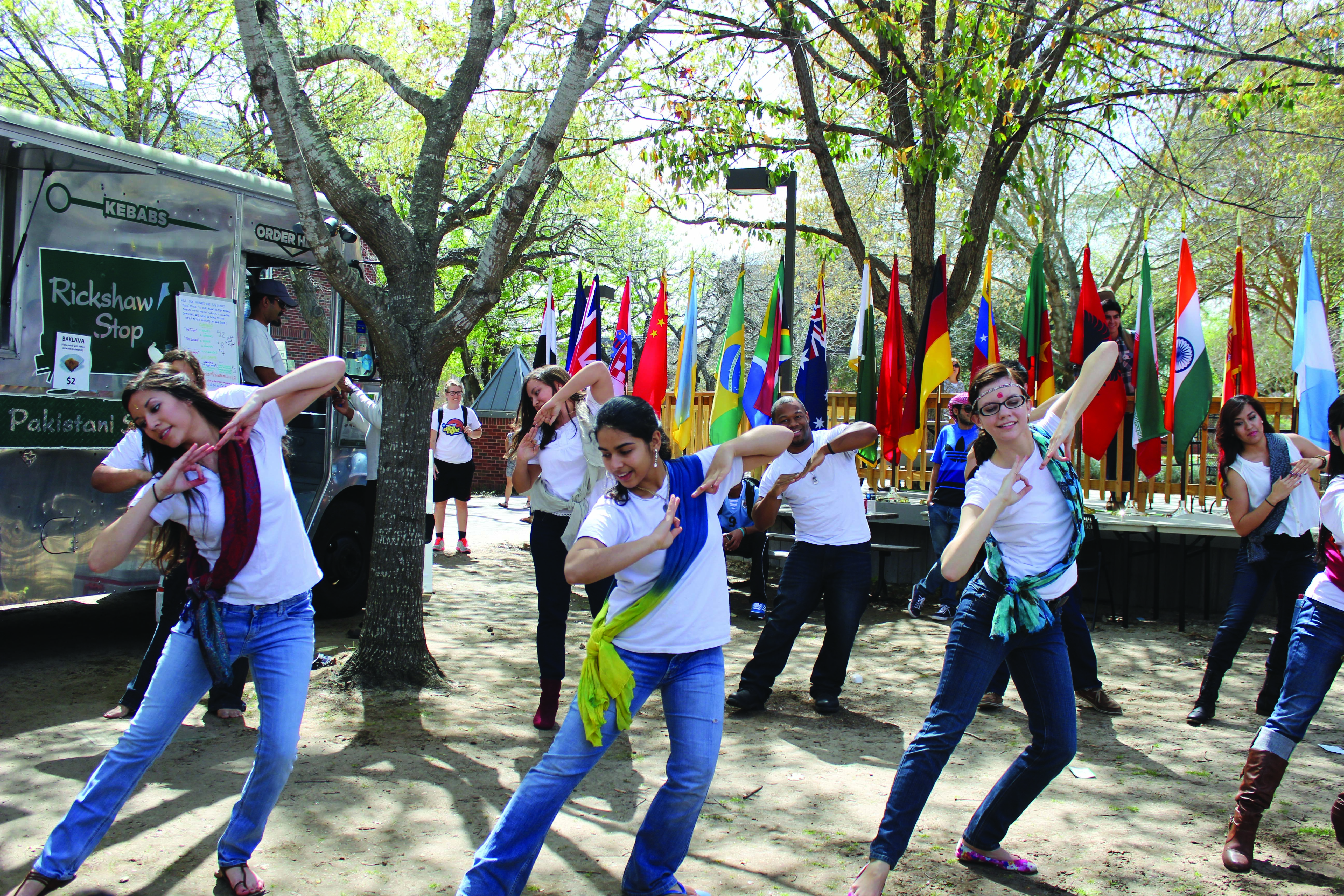
Culverhouse (left) introduces guest speaker Dr. Jonathan Shay.
UIW’s College of Humanities, Arts, and Social Sciences (CHASS) has been awarded a $100,000 grant from the National Endowment for the Humanities. This initiative for Hispanic Serving Institutions is a three-year project titled “Trauma: Conflict and Aftermath” and will be conducted by CHASS faculty in collaboration with the larger San Antonio community.
This project seeks to develop new interdisciplinary humanities courses and implement service-learning components in both new and existing humanities courses. Project studies will focus on psychological trauma resulting from conflict—that is, trauma resulting from deliberate, violent human interaction—in three populations: war veterans, refugees and victims of sexual violence. Each project year will be devoted to studying one of these three groups, hosting visiting speakers, and holding a symposium at the end of the third year allowing faculty and students to present work resulting from this project. Year one will focus on war trauma, year two sexual violence and year three refugee trauma. The resulting course designs should serve as a model of interdisciplinary and service-oriented humanities courses for all faculty, present and future. This, in turn, will allow students more meaningful engagement with their studies and the larger community.
In keeping with the interdisciplinary focus, the core personnel for the project will consist of one director, Dr. Zenon Culverhouse, assistant professor of philosophy, and eight faculty members, each of whom has a different specialty in the humanities and other fields.
In April, UIW hosted the project’s first visiting scholar Dr. Jonathan Shay. Shay is a former clinical psychiatrist for Veteran Affairs and recipient of the MacArthur Genius Grant Fellowship. His pioneering work on ancient Greek accounts of combat trauma has contributed greatly to the understanding and treatment of post-traumatic stress disorder among combat veterans. Shay gave a public lecture on the concept of Moral Injury, which he developed as a more effective way of viewing psychological trauma.









